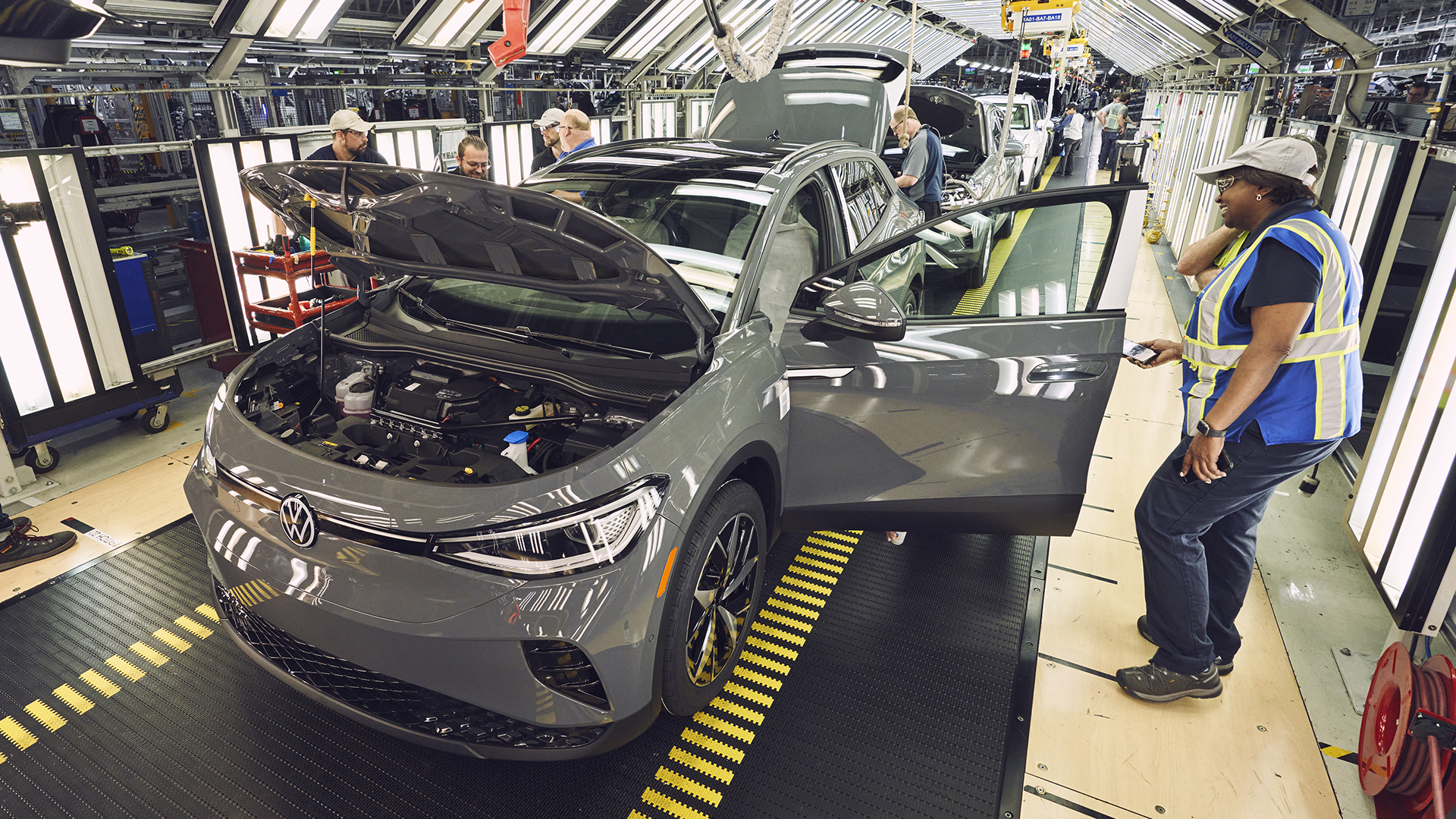

Officials from the EU and United States are working on an agreement that would give European automakers equal access to the U.S. market. The EU has come out against certain changes to EV tax credits in the U.S., however, claiming they are “discriminatory” against European manufacturers.
The talks concern the newly established Inflation Reduction Act passed by the Biden Administration over the summer, reports Reuters. The Act provides up to $7,500 in tax concessions for EVs built in the U.S., depending on the provenance of the battery used in the vehicle. Half of the credit is dependent on the vehicle’s battery containing at least 40 percent of parts and materials sourced from the U.S. or a country with a “free trade” agreement. The other half of the credit is only available for vehicles with a battery assembled in the U.S.
The measures included in the act are intended to spur investment in domestic industry. However, in the global market, it has the side effect of putting international companies offside, forcing them to compete on an uneven playing field. It’s not quite on the level of the taxes and tariffs that once hamstrung international trade, but it gives U.S. automakers a significant pricing advantage in the marketplace.

In comparison, the EU allows member states to offer incentives to EVs regardless of country of origin. European Commission Vice President Valdis Dombrovskis noted that this has been of significant help to U.S. automakers in recent years, highlighting that Tesla’s Model Y was the best-selling car in Germany month.
“That would not have been possible without the un-discriminatory EU subsidy, while EU electric cars do not get a similar subsidy in the U.S., which is discrimination that we want to address,” he said during a news briefing.
Dombrovskis will engage in trade talks with U.S. representatives later this week and indicated there was a “willingness” on the part of the U.S. to find a solution. On the domestic side, U.S. Trade Representative Katherine Tai indicated she had “every confidence” a solution would be found. The hope is that regulatory tweaks could allow EU automakers to participate in the tax credit scheme without having to amend the Inflation Reduction Act in Congress.
If EU automakers can access the tax credit scheme, it should help to further boost EV adoption with a wider range of more affordable vehicles on the market. However, it may also dilute the intended effect of the Inflation Reduction Act, which was apparently designed to boost the domestic vehicle and battery manufacturing sectors. Given the close ties between the EU and U.S., however, it’s likely a deal will be done to keep European automakers happy.
Got a tip? Let the author know: lewin@thedrive.com